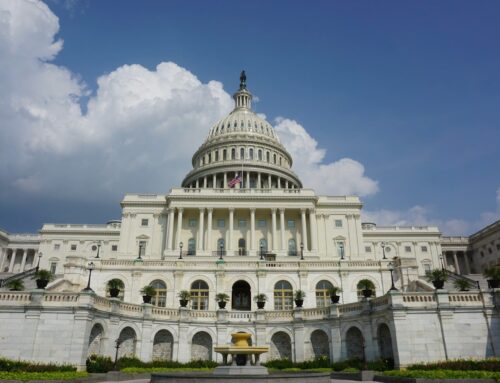Self-control is hard. It’s apparently especially hard if you’re a member of Congress doling out taxpayer dollars.
Just look at current spending caps and how lawmakers are dealing with them as an example.
Hardly anyone likes the Budget Control Act of 2011. This red-headed stepchild of legislation created the bipartisan, bi-cameral so-called “Super Committee” of lawmakers tasked with finding at least $1.2 trillion in deficit reduction.
When they failed to come up with so much as a dime, the law’s back-up plan kicked in and across-the-board sequestration cuts were ordered for fiscal year 2013. In addition separate caps on defense and non-defense discretionary spending were established for each year of the next decade to achieve the targeted amount of deficit reduction.
“[N]o one has come up with a politically and fiscally viable alternative to amend the BCA established caps.”
Lawmakers have been chafing under the current budget caps ever since. But no one has come up with a politically and fiscally viable alternative to amend the BCA established caps.
In the debate over the Senate version of the Fiscal Year 2018 National Defense Authorization Act, Senator Tom Cotton (R-AR) came up with a creative approach.
Don’t get rid of the law, just amend it to remove the enforcement mechanism. Then lawmakers can ignore the law without consequence – that is if you don’t count more deficit spending as a consequence.
Despite what you may have heard, after that first year, there was no sequestration. There is no meat axe looming above every federal program just waiting to slice across-the-board cuts to agency budgets.
And there never will be as long as Congress abides by the caps or legislatively adjusts them to cushion the budget blow as they have each year since the BCA was enacted.
Sen. Cotton’s proposal wouldn’t eliminate the caps, it just would eliminate the threat of sequestration lopping off any spending over the cap.
It’s basically an end-run of the law.
“[F]or the first time the total national debt exceeded $20 trillion.”
Problem is, like cheating on your diet by not counting doughnuts eaten standing up, those spending calories still add to the nation’s deficit waistline.
The timing of the underhanded maneuver to gut the budget caps is pretty ironic.
Just last week, Congress suspended the debt limit until December 8 and for the first time the total national debt exceeded $20 trillion. Those events would seem to indicate the country needs more budget discipline, not less.
Don’t get us wrong. We didn’t like the BCA much either.
But the point of the BCA was to “bend the cost curve” of our nation’s ballooning debt. The $1.2 trillion in deficit reduction and the year-by-year caps established to reduce the rate of spending growth were put in place to force Congress to finally make decisions.
If you think we need to invest more dollars in certain areas and you don’t like inefficient across-the-board cuts, make your case and make some choices. We did.
That’s why we proposed alternative measures lawmakers could adopt that would achieve the required deficit reduction in a more targeted and intelligent way than through the caps.
“[S]imply targeting discretionary spending is not enough to deal with our nation’s budget challenges.”
Take your pick: Super Cuts for the Super Committee or Sliding Past Sequestrationor Silencing Sequester Scaremongers.
We also recognize that simply targeting discretionary spending is not enough to deal with our nation’s budget challenges. Mandatory or entitlement spending(things like Medicare, Social Security, and agriculture subsidies) makes up two-thirds of the budget and will be the biggest driver of debt in future years.
These programs need reforms. And then there is the revenue side of the ledger that has to be tackled in comprehensive tax reform.
But to get to everywhere you have to start somewhere, and lawmakers started with discretionary spending.
Instead of abandoning that reform in a cynical legislative sleight of hand, lawmakers should dig into the reforms necessary to the budget process, prioritize spending, begin entitlement reform efforts, and move comprehensive tax reform.
It’s not easy, but that’s the job they all got elected to do.











Get Social